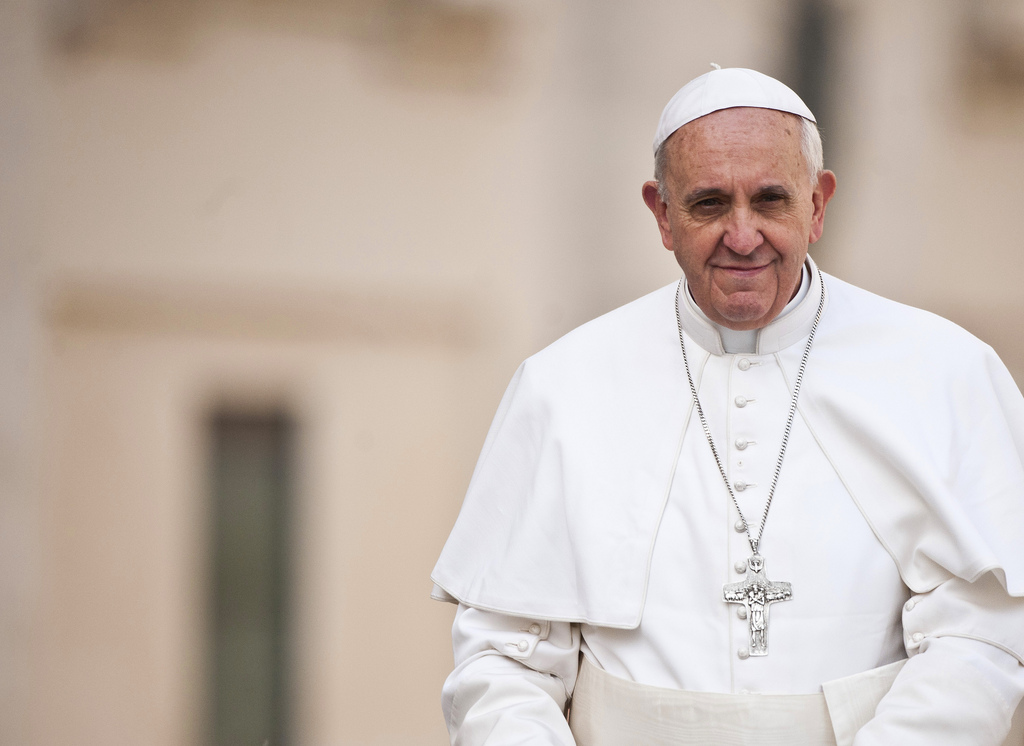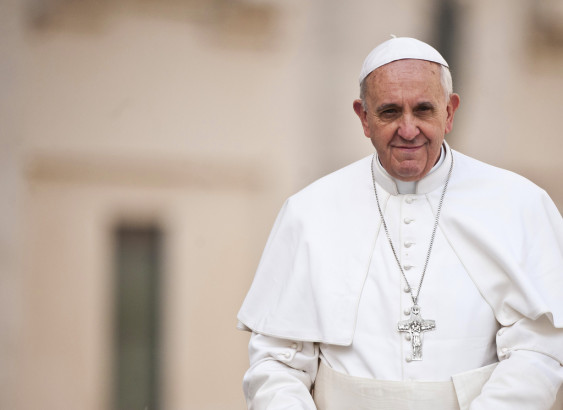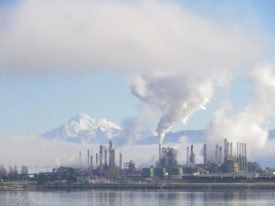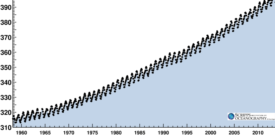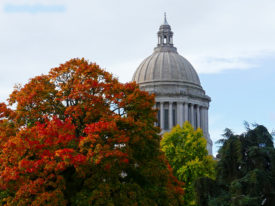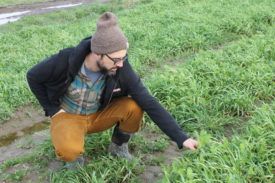If you’re on Facebook or have spent any time somewhere within a half-mile radius of a progressive-minded Catholic lately, you’ll know that The Super Pope (a.k.a. Pope Francis) has been outspoken about the fact that humans are causing global warming and his belief that Christians have a duty rooted in “ancient biblical teaching” to curb climate change. He is also expected to issue a papal encyclical on global warming this summer that will define the problem as a fundamentally moral and religious challenge for the world.
He will also address the General Assembly of the United Nations and a joint session of the US Congress presumably to urge the world’s policy makers to take his words seriously at the upcoming UN climate negotiations in Paris.
Francis has most certainly influenced how Catholics around the world are thinking about climate change. He’s the leader of 1.2 billion Catholics worldwide, after all. (And the memes! The memes!!) His words have been echoed throughout the church. A group of Catholic Bishops—representing every continent—recently called on the world’s governments to end fossil fuel use, citing climate change as a threat to the global poor.
Polling of US Catholics may indeed reflect his leadership.
Yale Project on Climate Change Communication and the George Mason University Center for Climate Change Communication opinion research late last fall found that Catholics—24 percent of all American adults—are more convinced that global warming is happening, are more worried, and are more supportive of policy action than Americans on the whole and as compared to other Christians.
Catholics also expressed higher support for climate change policies than other Christians.
But it’s Latino Catholics in the US whose opinions seem to be tipping the scales for Catholics in general. In a study last November, the Public Religion Research Institute (PRRI) found that 73 percent of Hispanic Catholics in the United States are “very” or “somewhat” concerned about climate change, higher than any other religious or ethnic group in the study’s breakdown.
Catholic or not, the study found that US Latinos are more likely than members of other racial and ethnic groups to identify climate change as a crisis or major problem. Seventy-five percent of Latinos in the US think so, compared to 56 percent of white Americans and 59 percent of black Americans.
Using an additive scale, combining perceptions of the problem with belief that respondents would personally be affected by climate impacts, PRRI developed an “index of concern.” On this scale, 71 percent of Hispanic Americans and 57 percent of black Americans are very or somewhat concerned, compared to less than half of white Americans (43 percent).
Using the same index, PRRI found differences in attitudes by religious affiliation, with Hispanic Catholics leading the pack and white Catholics trailing behind.

Indeed, the study reveals a surprising divide among Catholics. Sixty-three percent of Hispanic Catholics scored as very or somewhat concerned, while only 41 percent of white Catholics showed that level of concern. (That means 60 percent of white Catholics report being very or somewhat unconcerned.)

One reason that Latino Catholics show higher levels of concern: PRRI found that close to half (43 percent) of Hispanic Catholics—higher than any other religious group—expect to experience personal, substantial harm from climate change. Only 13 percent of white Catholics said the same.
Also significant: Latino Catholics’ clergy reportedly discuss the issue more often in church (white Catholics hear the least about climate change in the pews). Those who hear climate change discussed frequently in sermons are 13 percent more likely to believe it is real and caused by human activity.
These findings bolster other recent polling that shows US Latinos are more likely than non-Hispanic whites to view global warming as a problem that affects them personally. And may help explain why Latinos in the US more likely to support policies, such as taxes and regulations on greenhouse gas pollution, aimed at curbing it.
Now let’s hope Pope Francis can make an even bigger dent convincing Catholics in the US to get serious about global warming solutions, including some stubborn holdouts who self-identify as Catholic in the US Congress.

